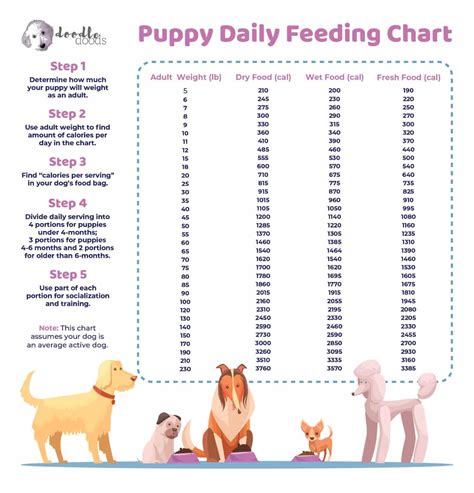How Often To Feed A Puppy: A Guide for New Owners
Bringing home a new puppy is an exciting time! But with all the joy comes responsibility, and one of the most important aspects of puppy care is feeding. Getting it right is crucial for your puppy's growth, development, and overall health. This guide will help you understand how often to feed a puppy, based on their age and breed.
Puppy Feeding Schedule: A Breakdown by Age
The frequency of feeding changes significantly as your puppy grows. Here's a general guideline:
Newborn Puppies (0-4 weeks):
- Feeding Frequency: Newborn puppies need to be fed very frequently, often every 2-4 hours, around the clock. This is because they have tiny stomachs and require constant nourishment.
- Feeding Method: During this stage, they'll primarily nurse from their mother. If orphaned, a specialized puppy formula and bottle feeding are necessary. Consult your veterinarian for guidance on proper feeding techniques and formula selection.
Weaning Puppies (4-8 weeks):
- Feeding Frequency: As they start weaning, you can gradually introduce puppy food. Begin with softened kibble mixed with warm water or puppy formula. Feedings should still be frequent, around 4-6 times a day.
- Transition: Transitioning from mother's milk to solid food takes time. Be patient and monitor your puppy's acceptance of the new food.
Young Puppies (8-12 weeks):
- Feeding Frequency: At this stage, you can reduce the feeding frequency to 3-4 times a day. They are becoming more independent and their digestive systems are maturing.
- Portion Control: Start to carefully measure their food intake, using the guidelines on the puppy food packaging as a starting point. Adjust based on their weight and activity levels.
Adolescent Puppies (3-6 months):
- Feeding Frequency: You can now feed your puppy 2-3 times a day. Their stomachs are larger, and they can comfortably go longer between meals.
Adult Dogs (6+ months):
- Feeding Frequency: Most adult dogs thrive on two meals a day. However, some smaller breeds might benefit from more frequent, smaller meals. Always consult your vet for personalized advice.
Factors Affecting Feeding Frequency
Several factors influence how often you should feed your puppy beyond just age:
- Breed: Larger breeds tend to grow more slowly and may require slightly less frequent feedings compared to smaller breeds.
- Activity Level: A highly active puppy will likely need more food than a less active one. Monitor their energy levels and adjust accordingly.
- Health Conditions: Any underlying health conditions can affect your puppy's appetite and nutritional needs. Always consult your veterinarian if you notice any changes in your puppy's eating habits or overall health.
- Food Type: The type of food you choose (dry kibble, wet food, or a combination) can impact how often you need to feed. Dry kibble often keeps puppies fuller for longer.
Signs Your Puppy is Eating the Right Amount
Keep a close eye on your puppy's weight and body condition. A healthy puppy should have a visible waistline and ribs that are easily felt but not prominent. If your puppy is gaining too much weight or appears too thin, adjust their food intake accordingly, always in consultation with your vet.
When to Consult Your Veterinarian
If you have any concerns about your puppy's eating habits, growth, or overall health, always consult your veterinarian. They can provide personalized advice based on your puppy's breed, age, and individual needs. They can help you create a feeding plan to ensure your puppy grows into a happy and healthy adult dog.
